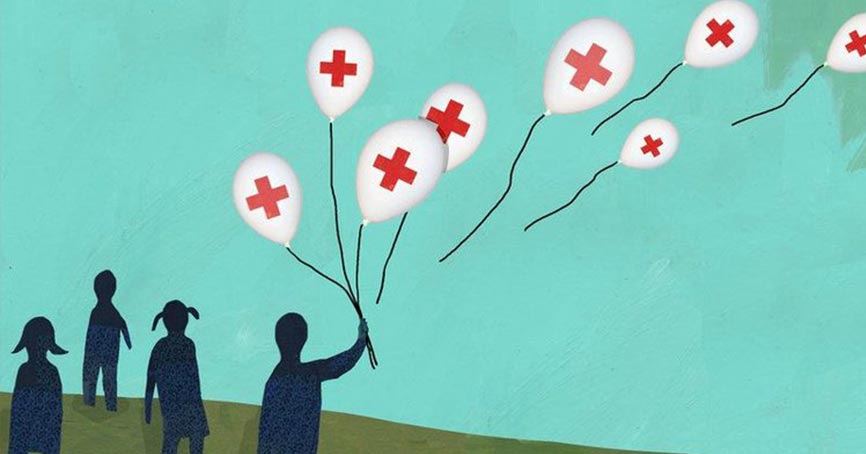According to a press report by UNICEF, malnutrition is one of the leading causes of deaths in children less than 5 years of age. Not only this, malnutrition in children multiplies the risk of contracting other diseases and infections. Find out more about symptoms and signs of malnutrition, the effects of malnutrition on child development and its treatment.
What Is Meant by Malnutrition?
Malnutrition is a health condition where the human body does not get a sufficient amount of essential components that help growth processes. It is one of the most prevalent health conditions in children that further leads to various diseases and infections.
This health condition may also hamper physical and cognitive development in a child’s life that can be largely irreversible. Besides, children suffering from malnutrition may also lack motor and social skills. As a result, they may perform poorly in school and experience a low success rate.
What Are the Symptoms and Signs of Malnutrition in Children?
The common signs of malnutrition include:
- tiredness and irritability
- lack of appetite or low interest in food or drink
- most often feeling cold
- lack of concentration
- loss of fat, body tissue, and muscle mass
- faltering growth rate
- low immunity power and taking longer to heal
- higher risk of complications after the operation
- depression
- longer healing time for wounds
In more severe cases:
- difficulty in breathing
- skin becomes dry, thin, rough, pale, and cold
- the cheekbones become visible as fat disappears from the face
- sunken eyes
- hair becomes dry and thin
- hair fall
Even after treatment, there can be digestive problems and long-term effects on mental function. In some cases, these problems may persist lifelong.
Causes of Malnutrition in Children
Usually, lack of vital nutrients and dietary supplements triggers the condition of malnutrition. However, there are other factors too that are responsible for malnutrition. Such as:
- irregular diet - inconsistent intake of food or skipping meals can also cause malnutrition and indigestion.
- intensive regime - consistent hard work can hamper the digestive process of children. This problem is mainly found in low-income groups.
- poor maternal diet - if a mother is under-nourished, they cannot provide enough nutrients to the child.
- poverty - another major factor for malnutrition is poverty. Notably, as the income level is low, the family remains under-fed i.e., malnourished.
- illiteracy & unawareness - most often, in rural areas, people are unaware of the dietary requirements for a healthy life. As a result, either child become obese or suffer from malnutrition.
What Are the Effects of Malnutrition on Child Development?
Given its impact on health and productivity, constant under-nutrition is a major obstacle to child development. Below are some of the effects of malnutrition that affect child growth.
Inadequate intake or deficiency of essential dietary substances can cause serious effects on the brain. As per an article, a human brain uses
20% of the body energy. Therefore, less consumption of adequate calories may lead to changes in mental functioning. Moreover, chronic hunger may also affect the mood and behaviour of the child. Where a hungry child may feel irritable, a well-fed child feels calm and performs well in different areas of life.
Poor feeding practices, inadequate maternal nutrition and poor hygiene, all sum up to stunted growth. According to
UNICEF, stunting is one of the causes of half of childhood deaths, globally. Stunted growth due to malnutrition may furthermore lead to a greater risk of contracting an illness, premature death, delayed psychological development and reduced understanding ability.
As a matter of fact, nutrition and immune system go hand in hand. Deficiency of macro-nutrients (fat, protein, carbohydrate) and micro-nutrients (mineral, water, vitamin) can cause harm to immunity functions. Balanced nutrition, on the other hand, enhances the resistance against diseases. Most likely, as per
trends, under-nutrition kids die of common infections rather than starvation.
As discussed earlier, malnutrition leads to immunodeficiency. As a result, it increases susceptibility to infections and diseases. Although, in this case, it can be compensated using medications, there's a fair chance of its recurrence every now and then.
Anaemia is another serious effect caused by malnutrition. It usually happens due to iron deficiency. If a child is constantly low on iron, they may suffer from anaemia which may inevitably lead to death.
How Can It Be Treated?
To combat the effects of malnutrition in kids, there are various treatments available. These include:
- consulting a dietician or paediatrician - a doctor can help in diagnosing the root cause of malnutrition in children. They can also plan a diet so as the kid gets all the essential supplements to overcome this health condition.
- monitoring progress - keeping a track of the appropriate intake of calories and nutrients ensures in combating the problem of under-nutrition.
On the other hand, the government is also taking initiatives to overcome this long-lingering problem of under-nutrition. For instance, it has launched schemes like
Integrated Child Development Services (ICDS) and
SABLA (Scheme for Adolescent Girls) to provide age-appropriate supplementary nutrition to the underprivileged kids.
How to Prevent Malnutrition?
Take care of below-given points to prevent signs of malnutrition in children.
- Seek professional guidance from the paediatrician as soon as a child reflects signs of malnutrition.
- Encourage the child to eat foods rich in vital nutrients and calories.
- Restrict kids from eating an unhealthy diet, especially junk.
- Promote small meals plan at regular interval of time
- Encourage regular physical exercises
- Consider adding supplements to their diet
If a child experiences chronic malnutrition, consult the doctor and follow up on the routine suggested by them. It is not impossible to fight malnutrition but critical care is required to overcome this health condition.

 Jun 03, 2019
Jun 03, 2019
 May 30, 2018
May 30, 2018 May 10, 2018
May 10, 2018 May 17, 2018
May 17, 2018